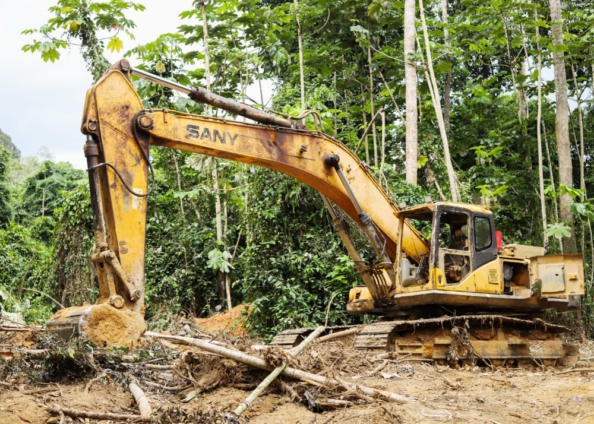The World Bank has expressed concern about Ghana's increasing reliance on its natural resources.
In its 2022 report on Country Climate and Development Report (CCDRS) on Ghana, the World Bank noted that Ghana has not been able to maintain its natural resources.
It said the country lags behind on most indicators of sustainable use of natural resources and environmental health.
“First, Ghana’s economy has become more, not less, reliant on natural resources extraction…Ghana has been depleting its renewable natural capital, which is a key source of livelihoods… Deforestation is high and spatially concentrated in areas of high poverty, with land use change from forest to agriculture causing about 92 percent of deforestation,” the report stated.
According to the report, since 1997, Ghana’s demand per person for global natural resources has been exceeding the biocapacity causing a steady rise in the ecological deficit.
It explained that “Ghana’s high population growth and increased demand for natural resources makes the demand per person on global natural resource an increasingly pressing concern since a shrinking natural capital stock will need to be shared with larger future generations, hampering the capacity of remaining ecosystems to deliver their services.”
World Bank says Ghana’s over-reliance on natural resources has already affected the climate in the country.
“The average number of ‘hot’ days has increased by 13 percent, while the number of hot nights per year increased by 20 percent. This is highly significant for a country with a tropical climate, an average annual temperature of 28 degree Celsius (2020), and relative humidity between 77 and 85 percent.”
It added that rainfall has become more erratic, sea level has risen and there has been increased coastal erosion due to changes in hydrodynamics.
The report was published in the wake of Ghana’s plan to procure oil with gold for the Ghanaian market. This is expected to address the “dwindling foreign exchange reserves” to procure oil products.
Vice-President Dr. Mahamudu Bawumia disclosed this on his Facebook page last week Thursday.
“The barter of sustainably mined gold for oil is one of the most important economic policy changes in Ghana since its independence.”
He said the government expects “this new framework to be fully operational by the end of the first quarter of 2023.”
Latest Stories
-
Woman drowns in abandoned galamsey pit at Anyaaso in Ashanti Region
11 minutes -
‘Ghana Must Go’ wows patrons, sets stage for global tour
24 minutes -
Hearts appoint Didi Dramani as head coach
30 minutes -
Justice Ackaah-Boafo stumbles through nat’l pledge in light-hearted moment during vetting
38 minutes -
Train judges on AfCFTA to safeguard Africa’s free trade vision – Justice Ackaah-Boafo urges
1 hour -
Cedi’s appreciation triggers price cuts, discounts at ‘Ecobank JoyNews Habitat Fair’ mini clinic
1 hour -
Stop blaming us for galamsey; you hired them – Chinese Ambassador fires back at Ghanaians
1 hour -
The Stirring You Can’t Ignore: 3 Signs God Is Calling You Into MORE
2 hours -
Police launch raid on illegal miners in Asenanyo Forest Reserve
2 hours -
Justice Ackaah-Boafo condemns ‘mob justice’, urges faith in Ghana’s legal system
2 hours -
Keep Supreme Court retirement age at 70 – Justice Ackaah-Boafo urges
2 hours -
Mr. Mike Eghan
2 hours -
Mr Kofi Amponsah-Efah
2 hours -
Judges must be AI literate – Justice Ackaah-Boafo
2 hours -
People must be responsible on social media, the law can catch up with them -Justice Ackaah-Boafo
2 hours

